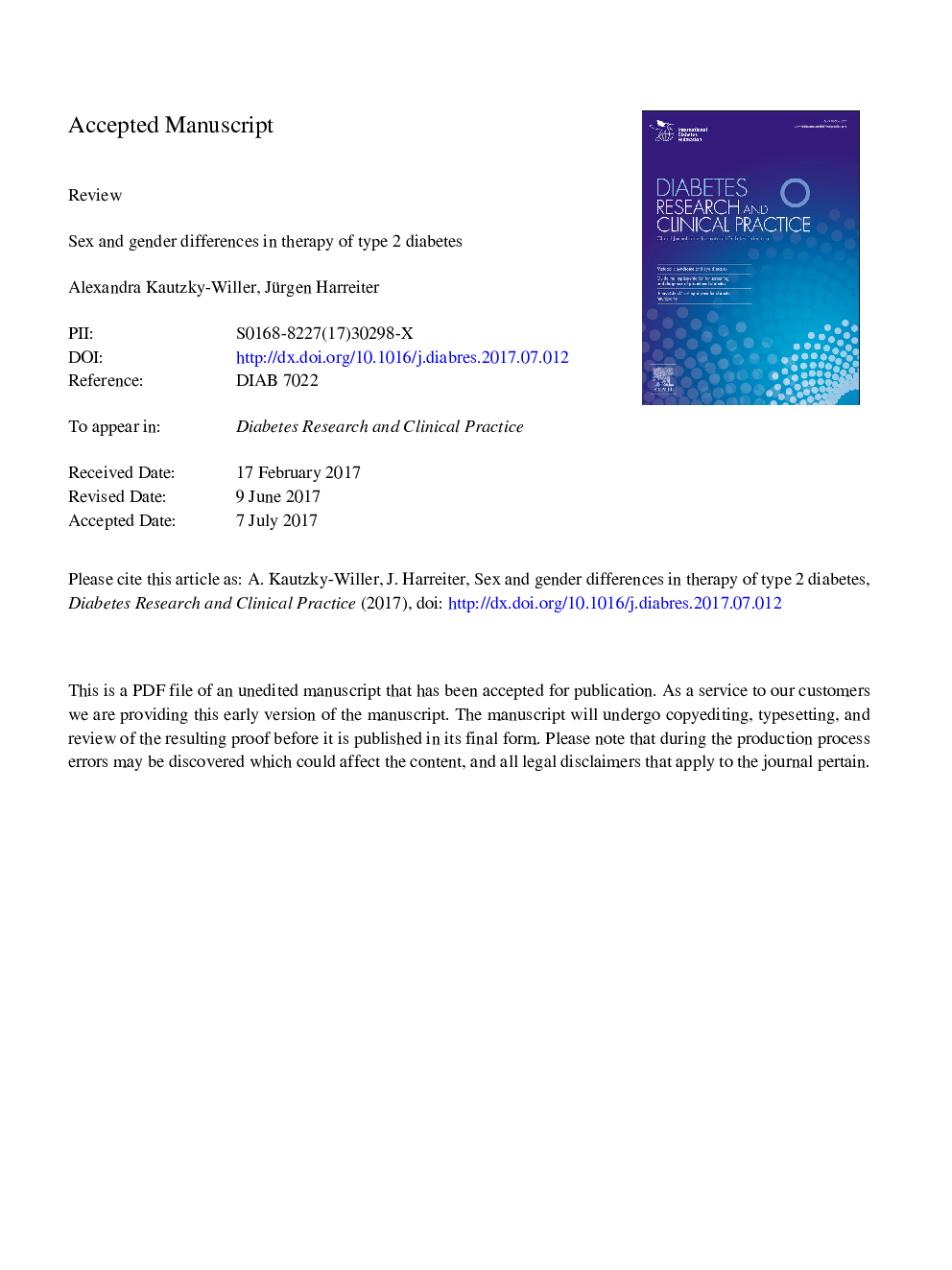| Article ID | Journal | Published Year | Pages | File Type |
|---|---|---|---|---|
| 5587233 | Diabetes Research and Clinical Practice | 2017 | 28 Pages |
Abstract
Clinical guidelines for the management of type 2 diabetes recommend individual therapy considering age, duration of disease, presence of complication and risk of hypoglycaemia. However, at present, the patient's sex has no impact on clinical decisions. Yet, there is mounting data pointing at biological and psychosocial differences between men and women with great impact on progression of disease and complications. Moreover, choices and preferences of therapeutic strategies as well as adherence to lifestyle and pharmacological interventions differ in both sexes. In addition, drug therapy may have sex-specific side effects. Therefore, there is need of more research on biological differences and of evidence-based individualised targeted sex-sensitive therapeutic concepts. Clinical guidelines must consider relevant sex-differences. Development and implementation of sex-specific programs may help to improve adherence to therapy and to reduce progression of disease and development of complications. A more gender-sensitive clinical approach may improve quality of life and increase health and life expectancy in men and women with type 2 diabetes.
Related Topics
Life Sciences
Biochemistry, Genetics and Molecular Biology
Endocrinology
Authors
Alexandra Kautzky-Willer, Jürgen Harreiter,
